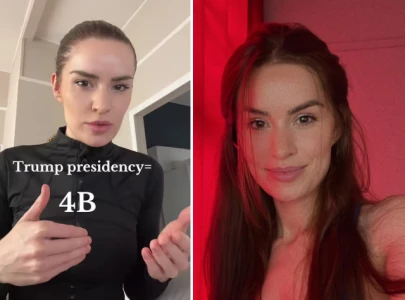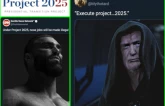
You must have encountered a host of theories in international relations (IR). Realism, idealism, Marxism, constructivism, critical theory, postmodernism, feminism, and on. Realism like many others has given birth to a number of sub-categories. President Trump calls his version the principled realism. Let me appropriate an idea from literature to present a new one: magical realism.
In literature, magical realism means a style of writing which presents a realistic picture of the modern world while retaining some elements of magic. Now, even though as a field of inquiry IR has expanded so rapidly that it has outgrown its mother called political science, by claiming to be a science it cannot match the fantasy world of fiction. So, no Gabriel Garcia Marquez for the discipline. The word ‘magical’ in the title magical realism would essentially refer to the tricks and illusions involved in the trade of foreign policymaking that would prematurely convince you that things had settled one way or the other and a certain outcome was all but guaranteed, only to find out that your mind saw what it wanted to see and the emerging reality was far more complex if not altogether different. As we progress in our discussion, I will try to substantiate the notion. But let me first introduce you to the elements that triggered this discussion.
Just in the past few weeks you have witnessed the old international fault lines heating up. China and India literally brawled over their unsettled and disputed border. Two US aircraft carriers carried out drills in the South China Sea. India and Australia inked an agreement concerning ‘Mutual Logistics Support’. The US also did not hold any punches. President Trump announced that Hong Kong would be treated as mainland China bringing an end to its special status. A host of Chinese officials have also been sanctioned. In an evidently related development, the UK announced that it was excluding China’s Huawei from its 5G infrastructure projects. Whereas, Google announced that it was making a huge investment in Indian company Reliance Industries’ Jio platforms to develop local 5G solutions. Is pulse quickening right now?
China has also retaliated with unmeasured quantities. With China you do not know till the last moment what hit you. But from Ladakh and foiling multiple Indian attempts to bring down the Oli government in Nepal to the warming up of ties between Iran and China you can see how it is securing its neighbourhood. India’s boorish policy towards its neighbours dictated by an extremist ideology melting down before our eyes does not help. Nepal’s PM Oli also stated recently that Lord Ram was not from India but from Nepal reminding us all that there is only one Hindu state in the world which is neither India nor India gets along with it. A religious masterstroke if you consider the sentiment on which India’s BJP has been capitalising. But is it official? Are we witnessing the start of a new cold war? Or is it something bigger? The makings of WWIII? Not so fast.
Without undermining the seriousness of these developments let me use two metaphors before fully dissecting the myths and realities of today. Let me first take you to your childhood when the circus came to town and a barren of piece land was instantaneously transformed into a living, breathing wonderland. What a delicious and amazing escalation. You went there to see exotic animals, exotic performances and occasionally some freaks of nature. And then after a few days the circus would pack up and move on leaving behind the same barren piece of land as if nothing ever existed there. Policies are always important but, in an age driven by data, their half-lives have dramatically contracted.
The second metaphor is from Harry Potter when a Horcrux is being destroyed and it puts up a resistance to befuddle your senses and minds just to stop you from doing it. But then it is destroyed with all the shock and awe gone at once. We are in that territory right now.
Sponsored messages from paid figures like Steve Bannon will try to convince you that history repeats itself. It does not. Not at this granular level. The US and China of today are different from the post-WWII US and USSR. Despite brief cooperation, the USSR and US barely knew or trusted each other. The China we witnessed today was partially built by the US. Since then their fortunes are so deeply intertwined that the idea of decoupling, except as a rhetorical device, is laughable. You can get a malignant organ surgically removed from your body but there is no way to separate your skin, flesh, and bone without killing you.
The US has changed drastically before our eyes. After the Cold War the realisation grew that the international influential set up the US had created was now yanking its chain. First phase came in the shape of reinventing the enemy. The clash of civilisations, hostile Al Qaeda, ISIL, Iran, Russia, China. The chain was still being yanked. Cough up if you want to maintain this infrastructure. Then came attempts at correction. Obama failed to bring an end to foreign liabilities and ended up normalising extremists like Modi and opening new frontiers. Finally, another correction in the shape of Trump who took a sledgehammer to the delicate masonry. It was proof of a concept and it worked. Your allies keep whispering that your enemy may win but you take one hard look at the extent of your interests and where interests of others start. Right now, an election is to be won and lost in America and that’s why old rhetoric will not be changed. But after that, no matter who wins will only focus on American interests.
China has also given proof of three concepts in the past few decades: Den Xiaoping’s reforms (aka opening up of China), peaceful rise, and one country two systems (both proof of peaceful coexistence). Despite some recent reverses, there is a lot there for the West to work with. In the end, China has to open up significantly and the West has to work with it.
Now the Horcrux. The world order that we see coming to an end was not shaped by the US or China but India. Three Indian PMs PV Narasimha Rao, Atal Bihari Vajpayee and Manmohan Singh played their cards well. By opening India up, they reshaped the discourse and captured a pivotal space in Western imagination. India gained unprecedented influence there. But it was a clever policy based on plausible deniability. Tell the West its new enemy is China and India is the bulwark against the new peril. Tell China India is actually its ally. Give nothing in writing and get the best of both worlds. Until the current lot came to power, inhaled its own propaganda, made a mess of its economy, and destroyed everything. Now everything is ideological as India transforms into an ugly illiberal democracy, offends China, and expects impractical things from the West. The damage it does to China is temporary. The damage it does to itself by alienating its neighbours is permanent. Enough magical realism for you?
Published in The Express Tribune, July 18th, 2020.
Like Opinion & Editorial on Facebook, follow @ETOpEd on Twitter to receive all updates on all our daily pieces.











COMMENTS
Comments are moderated and generally will be posted if they are on-topic and not abusive.
For more information, please see our Comments FAQ